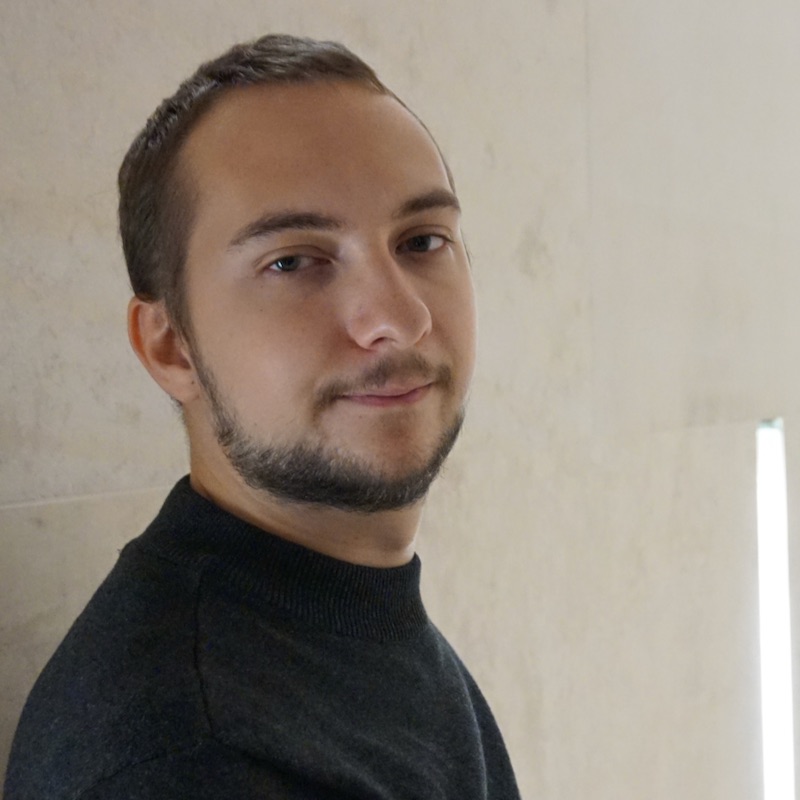 |
DANILO PEZZI
Dottorando
Dipartimento di Scienze Fisiche, Informatiche e Matematiche
|
Home |
Curriculum(pdf) |
Pubblicazioni
2023
- Denoising Diffusion Models on Model-Based Latent Space
[Articolo su rivista]
Scribano, C.; Pezzi, D.; Franchini, G.; Prato, M.
abstract
With the recent advancements in the field of diffusion generative models, it has been shown that defining the generative process in the latent space of a powerful pretrained autoencoder can offer substantial advantages. This approach, by abstracting away imperceptible image details and introducing substantial spatial compression, renders the learning of the generative process more manageable while significantly reducing computational and memory demands. In this work, we propose to replace autoencoder coding with a model-based coding scheme based on traditional lossy image compression techniques; this choice not only further diminishes computational expenses but also allows us to probe the boundaries of latent-space image generation. Our objectives culminate in the proposal of a valuable approximation for training continuous diffusion models within a discrete space, accompanied by enhancements to the generative model for categorical values. Beyond the good results obtained for the problem at hand, we believe that the proposed work holds promise for enhancing the adaptability of generative diffusion models across diverse data types beyond the realm of imagery.
2023
- Explainable bilevel optimization: An application to the Helsinki deblur challenge
[Articolo su rivista]
Bonettini, Silvia; Franchini, Giorgia; Pezzi, Danilo; Prato, Marco
abstract
In this paper we present a bilevel optimization scheme for the solution of a general image deblurring problem, in which a parametric variational-like approach is encapsulated within a machine learning scheme to provide a high quality reconstructed image with automatically learned parameters. The ingredients of the variational lower level and the machine learning upper one are specifically chosen for the Helsinki Deblur Challenge 2021, in which sequences of letters are asked to be recovered from out-of-focus photographs with increasing levels of blur. Our proposed procedure for the reconstructed image consists in a fixed number of FISTA iterations applied to the minimization of an edge preserving and binarization enforcing regularized least-squares functional. The parameters defining the variational model and the optimization steps, which, unlike most deep learning approaches, all have a precise and interpretable meaning, are learned via either a similarity index or a support vector machine strategy. Numerical experiments on the test images provided by the challenge authors show significant gains with respect to a standard variational approach and performances comparable with those of some of the proposed deep learning based algorithms which require the optimization of millions of parameters.
2023
- On an iteratively reweighted linesearch based algorithm for nonconvex composite optimization
[Articolo su rivista]
Bonettini, S.; Pezzi, D.; Prato, M.; Rebegoldi, S.
abstract
In this paper we propose a new algorithm for solving a class of nonsmooth nonconvex problems, which is obtained by combining the iteratively reweighted scheme with a finite number of forward–backward iterations based on a linesearch procedure. The new method overcomes some limitations of linesearch forward–backward methods, since it can be applied also to minimize functions containing terms that are both nonsmooth and nonconvex. Moreover, the combined scheme can take advantage of acceleration techniques consisting in suitable selection rules for the algorithm parameters. We develop the convergence analysis of the new method within the framework of the Kurdyka– Lojasiewicz property. Finally, we present the results of a numerical experience on microscopy image super resolution, showing that the performances of our method are comparable or superior to those of other algorithms designed for this specific application.
2022
- Learning the Image Prior by Unrolling an Optimization Method
[Relazione in Atti di Convegno]
Bonettini, S.; Franchini, G.; Pezzi, D.; Prato, M.
abstract
Nowadays neural networks are omnipresent thanks to the amazing adaptability they possess, despite their poor interpretability and the difficulties they give when manipulating the parameters. On the other side, we have the classical variational approach, where the restoration is obtained as the solution of a given optimization problem. The bilevel approach is connected to both approaches and consists first in devising a parametric formulation of the variational problem, then in optimizing these parameters with respect to a given dataset of training data. In this work we analyze the classical bilevel approach in combination with unrolling techniques, where the parameters of the variational problem are trained with respect to the results obtained after a fixed number of iterations of an optimization method applied to it. This results in a large scale optimization problem which can be solved by means of stochastic methods; as we observed in our numerical experiments, the stochastic approach can produce medium accuracy results in very few epochs. Moreover, our experiments also show that the unrolling approach leads to results which are comparable with those of the original bilevel method in terms of accuracy.